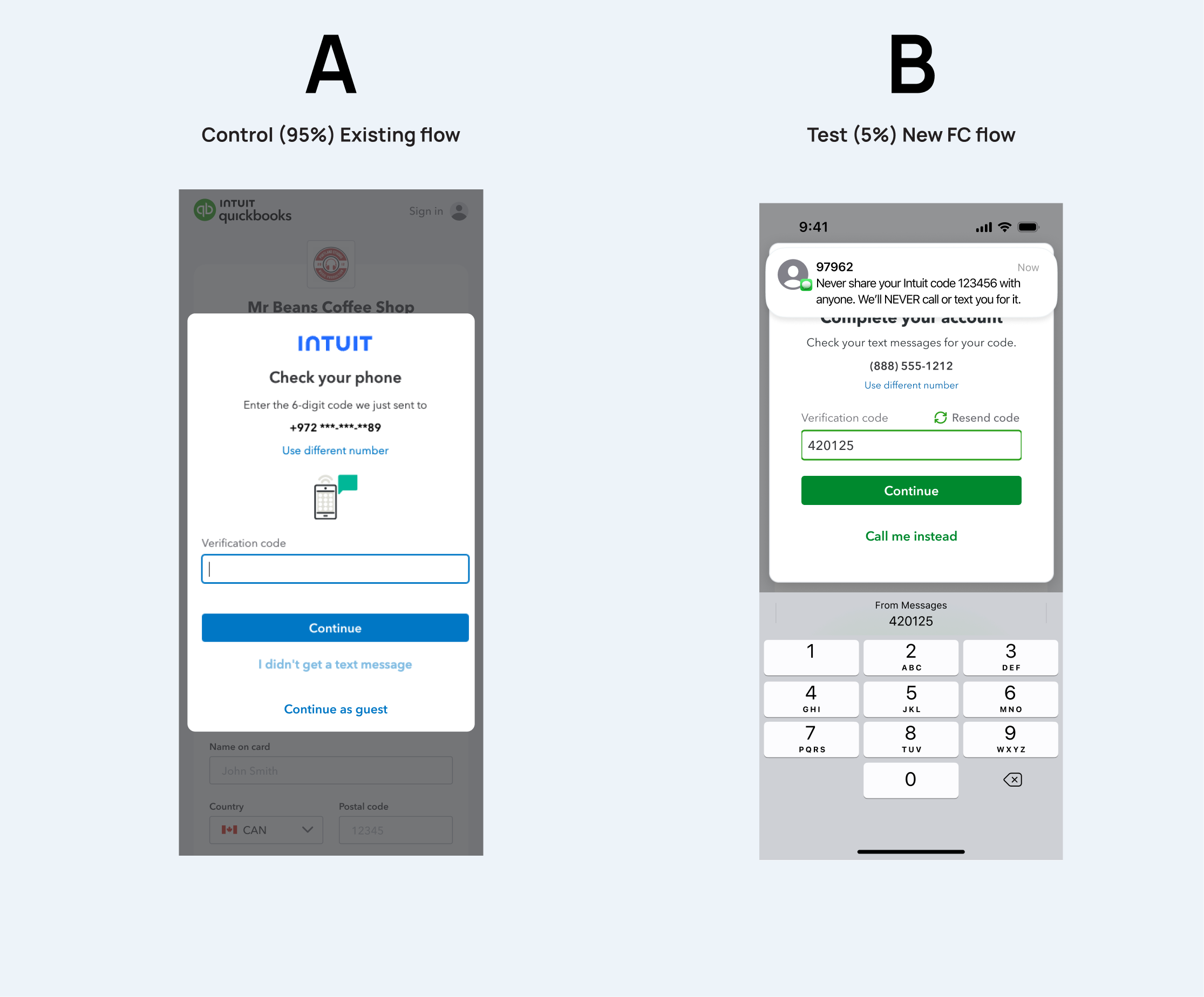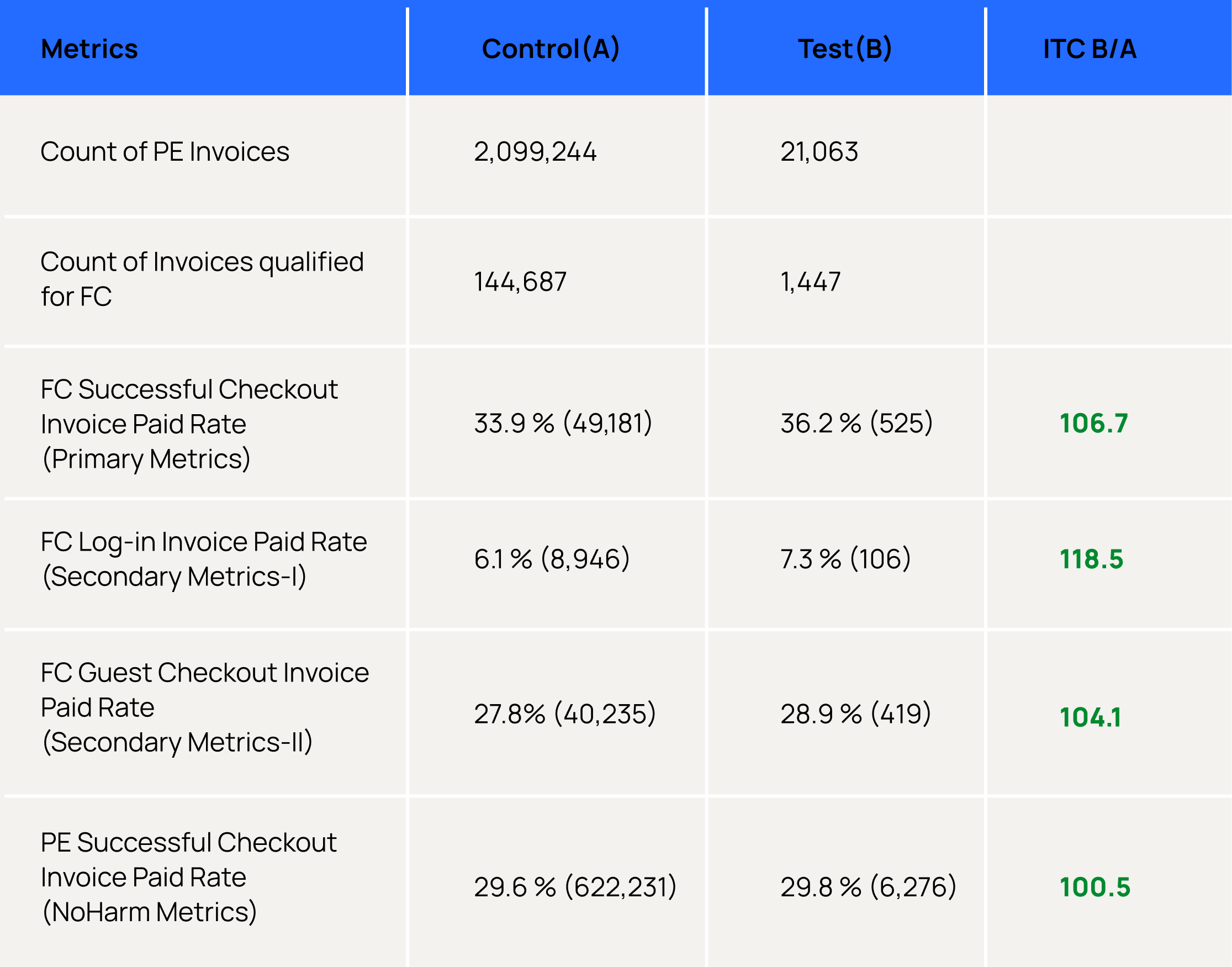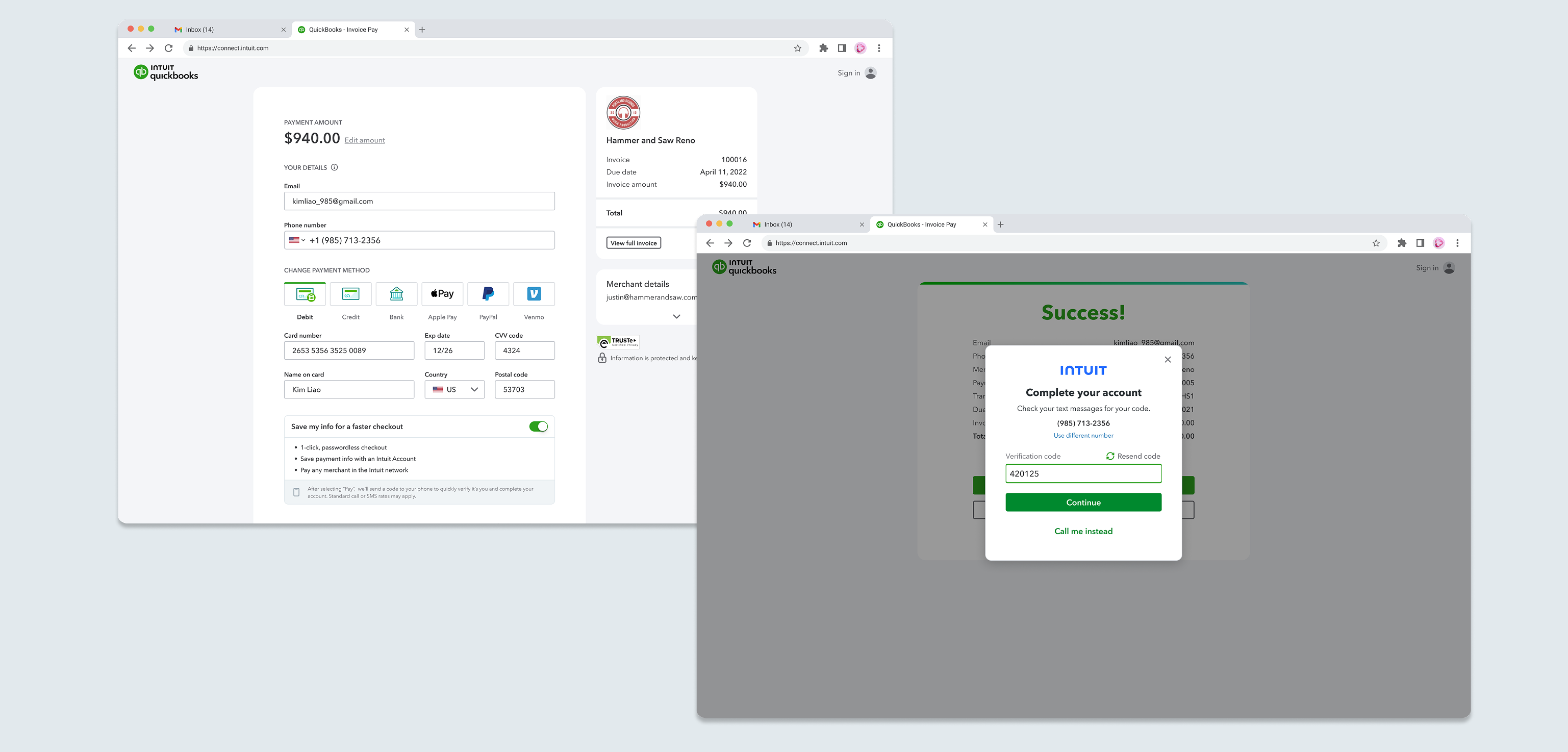In FY24, over 24 million unique customers paid an invoice through Intuit’s QBO Payments—97% as guests. Although 14% already have an Intuit account via TurboTax, they still need to re-enter payment info when making purchases. Returning customers must complete 5–6 fields for every guest transaction or create an Intuit account to reuse their payment method.
By enabling a frictionless sign-in and wallet experience, we can boost conversion and unlock new engagement opportunities across Intuit’s ecosystem. Regulatory frameworks like FTC Safeguards and PSD2 SCA don’t require enforcing multi-factor authentication (MFA) to use saved payment methods. They only require two distinct factors based on NIST’s knowledge, possession, or inherence model.
I am a homeowner in the U.S
I’m trying to pay my 1-2 monthly invoices for my landscapers and other services.
But I have to take out my credit card or find my bank account information every time I need to enter payment details.
Because I have to be routed outside of the QBO payment portal to create an Intuit account, and I do not have motivation to create an account after the payment has made,
Which makes me feel anxious and frustrated when I come back to pay more invoices.
Over 24 M customers paid an invoice through Intuit QBO payment in FY24, but 97 % customers paid as a guest.
We believe that creating a simple, scalable account creation process will encourage more customers to sign up and save their payment info for future payments. This enhancement will streamline the invoice payment experience in QBO and drive an increase in checkout conversion rates.
If we let customers quickly create an account without leaving the payment portal,
Then new customers will be more likely to save their payment info and successfully check out
Which we will measure by the number of new accounts created through the payment experience and successful checkouts.
Success metric will be the account creation rate and checkout conversion rate.
❖ ❖ ❖
After aligning with business goals, I conducted a thorough analysis of the existing experience to identify friction points and usability gaps. My goal was to uncover quick, high-impact design opportunities to enhance the user journey with minimal engineering effort.
1. Low visibility of account option
The “Sign in or Create Account” option is placed below the fold, making it difficult for users to discover and engage with.
2. Disruptive redirect flow
Customers are redirected out of the QBO payment portal to the Intuit Account sign-up page. This creates the perception of extra work, leading to a high drop-off rate and discouraging account creation.
3. Increased checkout friction
The combination of hidden sign-in options and disruptive redirection adds unnecessary steps to the payment process, creating friction and negatively impacting conversion rates.

❖ ❖ ❖
I streamlined workflows, simplified interfaces, and optimized information hierarchy to reduce friction and improve usability. I also introduced a lightweight modal within the identity framework that can be leveraged across the platform. These quick, low-effort changes boosted task completion, built user confidence, and delivered immediate impact.
1. Collect email and phone number within the QBO payment portal
Customers enter their email and phone number directly in the payment screen. This eliminates the need for redirection or re-entering information, keeping them engaged in the checkout flow.
2. Seamless account creation toggle
A simple “Save my info for a faster checkout” toggle is added within the payment flow. When switched on, the provided email and phone number automatically initiate the account creation process in the background, requiring minimal extra effort from the user.
3. In-line OTP verification with identity modal
After payment, a lightweight identity modal prompts customers to verify via OTP. This allows customers to authenticate and complete account creation without leaving the payment experience, making the process secure and frictionless.

❖ ❖ ❖
To validate and communicate the solution, I created an interactive Figma prototype. This allowed me to test workflows, uncover usability gaps, and explore multiple use cases in real time.
1. Modal interaction for identity
Introduced a lightweight identity modal to reduce friction in account creation. This framework can be scaled across other flows to streamline authentication and increase adoption.
2. Additional use cases
Other Identifty use case covered such as reCaptcha, collision experience.
Explore Prototype ->❖ ❖ ❖
With confidence in the solution, the team moved forward with controlled experiments. We tested the new design against a control groups to validate its impact, ensuring that improvements were not only user-friendly but also delivered measurable business results.
14 days controlled group testing
To validate the impact of the frictionless checkout experience, we ran a 14-day A/B test with two controlled groups.
Duration: 14 Days
Methodology: A/B controlled groups
Split: 95% vs 5%
Control (95%) – Existing Flow: Customers received a pay-enabled invoice and completed payment by logging in through the standard checkout experience.
Test (5%) – Frictionless Checkout Flow:
Customers received a pay-enabled invoice and completed payment through the new frictionless checkout experience.

Metrics and Data:
Trend continues with promising performance from Test group (using frictionless checkout - Based on the current performance, we are dialing up to 5% traffic on 3/13. experience) vs Control group (split by 99%-1% respectively) and in the direction as expected.
Data is not baked for the last 7 days so numbers are under dialed, expected to improve further once fully baked
Based on the current performance, we are dialing up to 5% traffic.

The frictionless checkout design proved highly effective in driving measurable business outcomes. In just two weeks, the test group outperformed the control group with a +7% lift in invoice payments overall, including a +18% improvement for logged-in users and a +4% improvement for guest users. Importantly, no negative impact was observed across the broader ecosystem, validating the solution as safe to scale. These results gave the business confidence to expand traffic allocation and confirmed that lightweight, user-centric design changes could unlock meaningful revenue growth.





